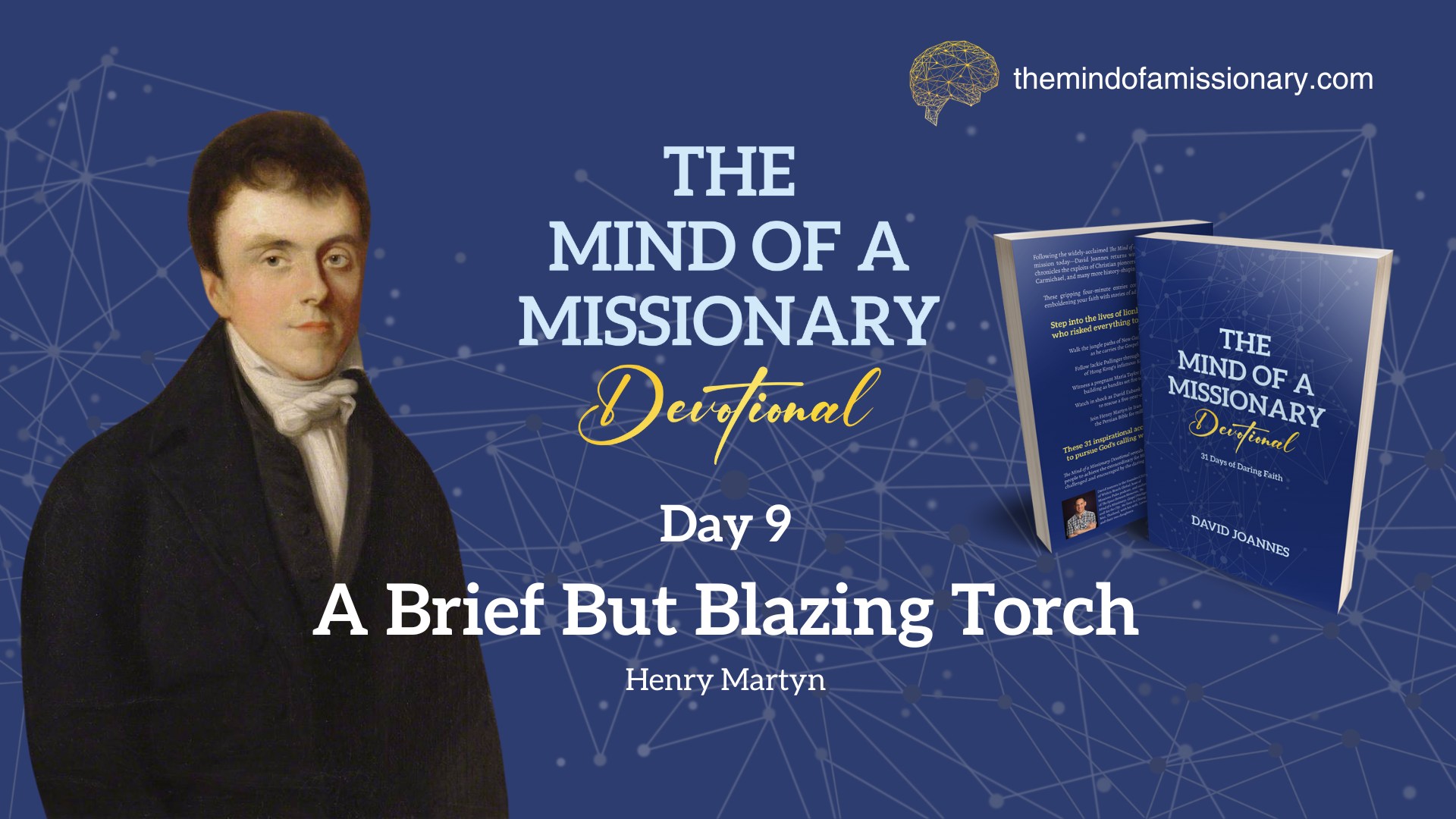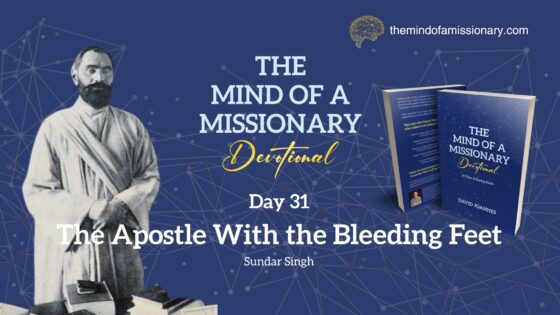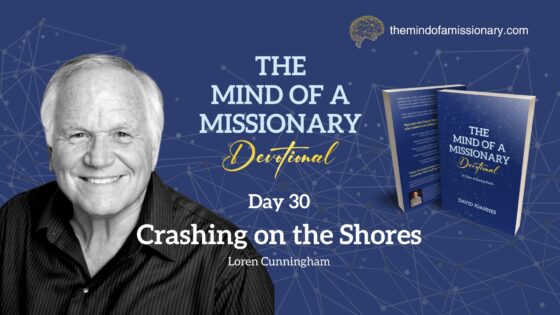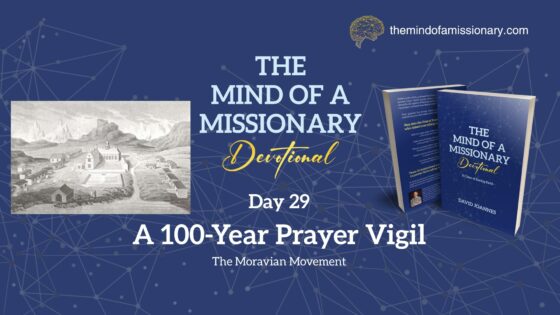Day 9
The Mind of a Missionary Devotional
A Brief But Blazing Torch
Henry Martyn
“But you, take courage! Do not let your hands be weak, for your work shall be rewarded.” — 2 Chronicles 15:7
The frail English missionary lowered his pen, gathered his manuscript neatly on the table, and stepped outside for a brief reprieve. The Persian heat greeted his aching body; his advancing tuberculosis only exacerbated the pain.
It was the summer of 1812, and Henry continued his work on the Persian New Testament translation for nearly one year in Shiraz, Persia (modern-day Iran). His battle with tuberculosis only intensified the speed of his labors, knowing he was working against limited time. “The call of Christ bids me cry aloud,” he said, “so how can I be silent?” However, his Gospel proclamation drew unforeseen backlash from within the Islamic community.
A group of fanatical Muslim clerics surrounded Henry outside his home, dead set on converting him to Islam. While vehemently debating his claims about the Messiah, they blasphemed the name of Jesus Christ. Henry began to weep. His tears were a source of wonder to the Muslim men. When they asked him why he wept, he replied, “You have just blasphemed the name of my wonderful friend and Savior, Jesus Christ.” The Fundamentalist Muslims were profoundly affected by the missionary’s words. His adoration of Jesus and the gentleness he communicated marked Henry’s mighty impact on the Muslim people of Persia.
Henry Martyn was born in Cornwall, England, on February 18, 1781. As a young boy, he was small in stature and sensitive about his lack of athletic ability, but it soon became evident that he had a brilliant mind. He entered Cambridge University at age sixteen, taking top honors in mathematics. However, after graduating in January 1801, he admitted, “I obtained my highest wishes but was surprised to find that I had grasped a shadow.” A profound affection for Christ grew as he set his eyes on a greater purpose.
His ship to India set sail on July 10, 1805, marking the beginning of his brief but impactful missionary career. The trip took nine and a half months due to mechanical difficulties, and he arrived in Calcutta on April 21, 1806. Henry was twenty-five years old.
The brilliant mind who left Cambridge had a knack for linguistics. He threw himself unstintingly into learning Urdu, preaching his first sermon in the language on March 15, 1807—less than one year after his arrival. He started meetings for the Indians, established schools for their children, and began translating the New Testament.
Henry worked incessantly in his translation work under India’s heat, and the long hours took their toll. Tropical diseases caused his health to decline in 1808. Weak but undaunted, he wrote, “If God has work for me to do, I cannot die.”
An Arab-Muslim named Sabat, who had come to know Christ, aided in Henry’s translation work. When Sabat told him about Persia’s great spiritual need, the two men began working on translating the New Testament into Persian and Arabic. The seeds of his next venture took root, and God marked the missionary for the Middle East.
Henry arrived in Persia on May 21, 1811, becoming the first Protestant missionary to live in the country—though he had only one year left. He spent long hours revising the Persian New Testament, completing his translation in February 1812. He immediately left on a two-month journey from Shiraz to Tabriz to present his work to the Shah. However, to the missionary’s great disappointment, Persia’s leader refused to give him an audience.
Nearing his end, Henry suffered greatly from what probably was malaria as well as his advancing tuberculosis. His last journal entry at age thirty-one was a poignant mix of hope and exhaustion. He wrote with a feeble hand on October 6, 1812, “I thought with sweet comfort and peace of my God, who, in solitude, was my company, my friend, and comforter.” He died ten days later, on October 16.
Soon after his death, the British Ambassador to Persia officially presented the Shah with an ornately bound copy of Henry Martyn’s New Testament. His translation was later printed in St. Petersburg in 1815, and the second edition was published in Calcutta in 1816. His Urdu translation of the New Testament, printed in 1814, continued to be used long after his death.
“The spirit of Christ is the spirit of missions,” the missionary to India and Persia said. “The nearer we get to Him, the more intensely missionary we become.” Henry Martyn’s life was a brief but blazing torch, illuminating the path to Jesus for millions of people.
– Personal Response –
Passage: But you, take courage! Do not let your hands be weak, for your work shall be rewarded.
(2 Chronicles 15:7)
Point: A surrendered life, however short, can shine brightly for eternity when spent for Christ.
Ponder: Are you living each day with urgency and purpose for Christ, knowing time is short but eternity is long?
Prayer: Lord, make my life a blazing torch for Your glory. Give me strength to serve You faithfully, even in weakness. In Jesus’ name, amen.
Proclamation: I will not waste my life, but live it boldly and let it burn brightly for Jesus, no matter the cost.
Practice: Choose one way today to share Jesus—through your words, a gift, a prayer, or an act of service—and do it with love and boldness.
Learn more about The Mind of a Missionary Devotional at themindofamissionary.com




